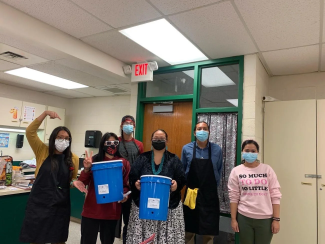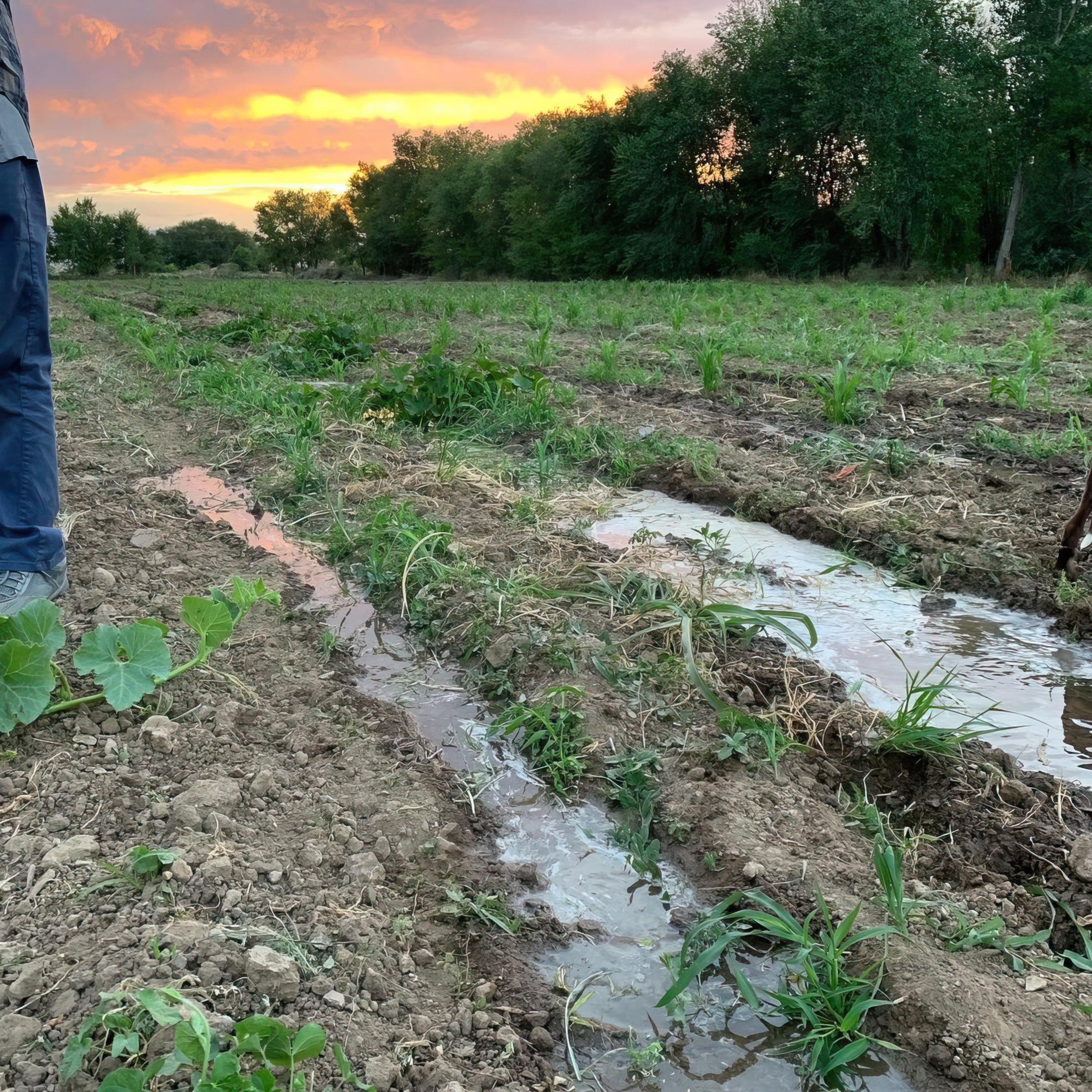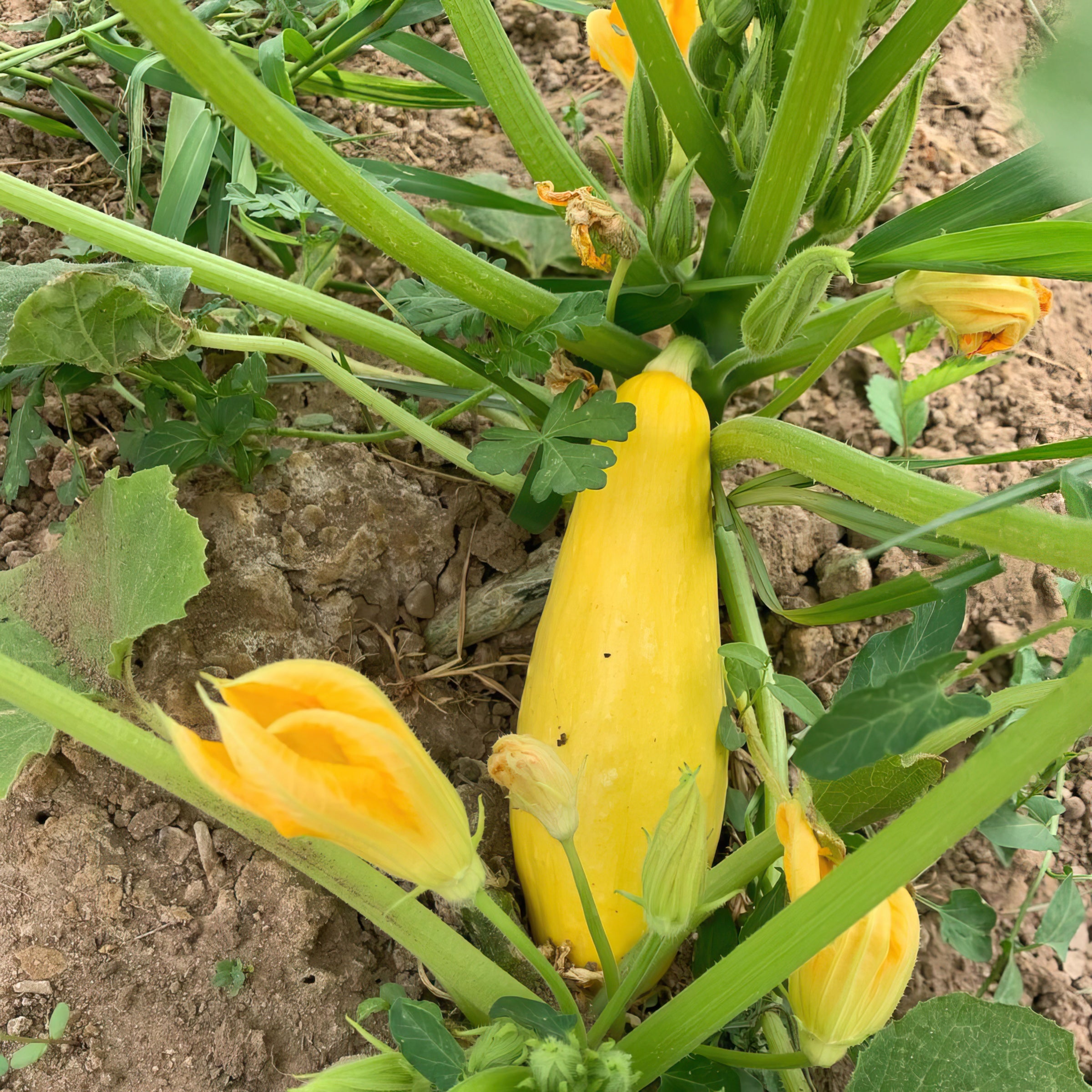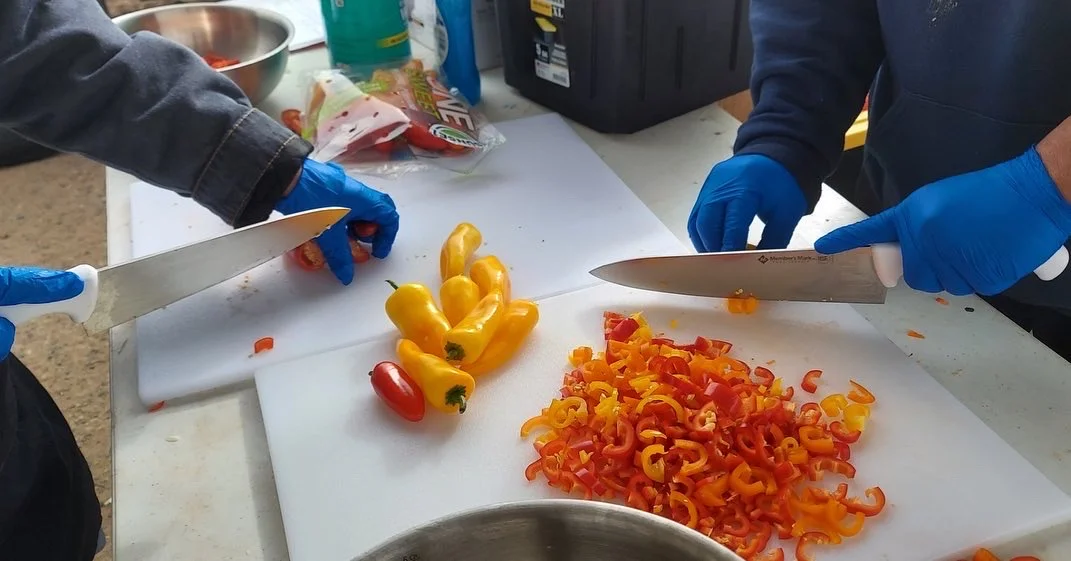
Shiprock and Hogback, New Mexico are Diné communities spanning over 6,000 acres including a nearby river irrigation system, which makes their land ideal for farming. However, very little of that land is being utilized, as some members have been forced to abandon their traditional Diné lifeways. Food insecurity rates among the Navajo Nation are some of the highest reported in the United States, at 76.7 percent, and younger generations are at risk of not learning Diné traditions, including traditional foods. Enter Diné Introspective Incorporated, a Shiprock-based, nonprofit, Native-led organization with a mission to strengthen communities “through social justice, environmental justice, digital justice, food sovereignty, and energy conservation.”
“In the midst of Diné Bikeyáh, Navajo Nation, our Native people have long experienced poverty, substance and drug addiction, systemic racism, health care disparities, violence, mental health challenges, health inequities, food insecurity, and environmental dangers at alarming rates beyond the national norm. Our biodiverse and rich resources have been exploited by extractive companies and governments that are not unique to Diné land. Today, Diné people and other Tribal communities still face legacies of colonization and modern day exploitation that threatens our communities,” Diné Introspective states on their website.
To address these challenges and inequities, Diné Introspective created the Arrowhead Lifeway Farming Initiative. Arrowhead Lifeway was created at the beginning of the pandemic to provide relief to families in need, including vulnerable populations that were directly impacted by the virus. “We understood families and individuals were afraid of leaving their home, and oftentimes when they did, the stores were empty,” the organization says in a grant report to Cultural Survival. They facilitated basic necessities like food, water, and cleaning supplies by creating and supplying food and care boxes. They offered drive-through services and drop offs for families who lacked transportation, had tested positive for COVID-19, or lost their job due to COVID-19.

In addition, to address the increased food insecurity of an already stressed population, Arrowhead Lifeway invested in the local Indigenous farmers, purchasing their organic produce to add to food boxes. These activities underscored the importance of continuing traditional agriculture, food sovereignty, and Indigenous healthy eating that will ultimately lead to a sustainable food system and increased health and wellness among the Navajo Nation. To date, they have served over 7,000 families in the Northern Navajo Agency area in 23 communities.
Diné Introspective believes that reestablishing food sovereignty in their community requires engaging the youth and teaching them traditional farming techniques and language through healing with land. One of the ways this is accomplished is by growing a sustainable food system that incorporates Diné values and beliefs. It is important to continue the teachings, prayers, and ceremonies for their people to heal.
The inspiration for Arrowhead Lifeway was to support local Indigenous farmers by purchasing their produce, assisting the farmers, teaching young farmers about traditional Diné agriculture, providing food demonstrations, and teaching Diné foodways through online workshops and community food sharing gatherings. The goal was to reactivate and reclaim farming land by assisting and engaging local youth farmers and community members to promote a younger and more innovative agricultural sector. Implementing these activities proved difficult due to pandemic restrictions, so Diné Introspective partnered with Cultural Survival’s Keepers of the Earth Fund to provide virtual events and workshops for the youth and for the wider community. When COVID-19 restrictions were lessened, they were able to provide in-person workshops.

Tending to the land, growing squash and corn.
The funds provided by the Keepers of the Earth Fund were used to support five workshops of food demonstrations, which included cooking meats, vegetables, and breads, among other culturally appropriate recipes to disseminate Indigenous foodways and traditional agricultural techniques. Diné Introspective purchased leafy greens and healthy foods from local Indigenous producers. The Arrowhead Lifeway program was able to create 30 boxes of farming tools, seeds, land development and management plan. Diné Introspective delivered 20 boxes to farmers and 10 boxes to the community. They expect to add more to these boxes at the onset of the next farming season, beginning in April.
In August 2021, Diné Introspective hosted a harvest celebration where they provided over 300 meals to community members, farmers, and surrounding communities. Farmers belonging to Diné Introspective donated their time to cook the food and do community outreach about traditional food. This event celebrated the harvest year along with the new year, and the community engaged in the activities via volunteering and in-kind donations. Community members and Elders mentored the young farmers, building relationships to expand the farmland and incorporate Traditional Knowledge and language. The Elders offered Diné kinship, values, and beliefs, revitalizing the farming land while valuing Diné language and teachings, and healing the youth, community, and land through revitalizing and consuming of traditional foods.

The program activities were led by Elders who are knowledgeable in traditional farming techniques and traditional foodways. In their grant report, Diné Introspective says that their “competitive advantage is their K’é (kinship), the connection to land, water, animal, and all life forms, and understanding and valuing the Diné roots.” Participants of this collaboration between Diné Introspective and Cultural Survival appreciated the holistic approach to healthy and culturally appropriate food. “What I learned from the presentation about food sovereignty is [how] colonization impacted our food system, and now we have to continue preserving our ways of living,” said one Newcomb High School student and farmer. Others discovered that they have always had their traditional food in front of them. “I liked the chilchil pudding; I had never tasted anything like that. I had no idea it was a Diné food,” said a Farmington High School Native American Club student and farmer.
The members of Diné Introspective live in the community they serve, which ensures that its designs and measures are culturally appropriate and responsive. The same members are the beneficiaries of the program services and have the most to gain from cultural and Traditional Knowledge that will inform the improvement of services needed. Diné Introspective plans to continue building networks and partnerships with the farmers to reactivate over 100 acres, and eventually expand to an additional 500–1,000 acres each summer, restoring re-generational wealth. Through the Arrowhead Lifeway program and its innovative economic development activities, they will continue to increase Indigenous control over their natural resources and food systems by providing educational workshops to participants.
“The program farm is the outdoor classroom for our participants to learn, and workshops will be conducted there. When Indigenous people have high and steady employment rates, the poverty status will decline, and their wealth will begin to grow to create their own projects. This will not only benefit the program participants or local community members, but the [entire] Navajo Nation,” Diné Introspective said in their report to Cultural Survival.
Through the Keepers of the Earth Fund, Cultural Survival supports collective projects to recover or strengthen food sovereignty among Indigenous communities that have been impacted by external and non-culturally appropriate eating habits. Indigenous Peoples around the world, like the Diné, are working to maintain their traditional food and farming as a more respectful relationship with land and environment.
In 2021, Diné Introspective received a grant from the Keepers of the Earth Fund, an Indigenous-led fund at Cultural Survival designed to support Indigenous Peoples’ advocacy and community development projects globally. Since 2017, we have supported 238 projects in 38 countries through small grants and technical assistance, totaling $1,070,602.
All photos by Diné Introspective.
